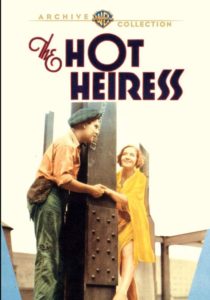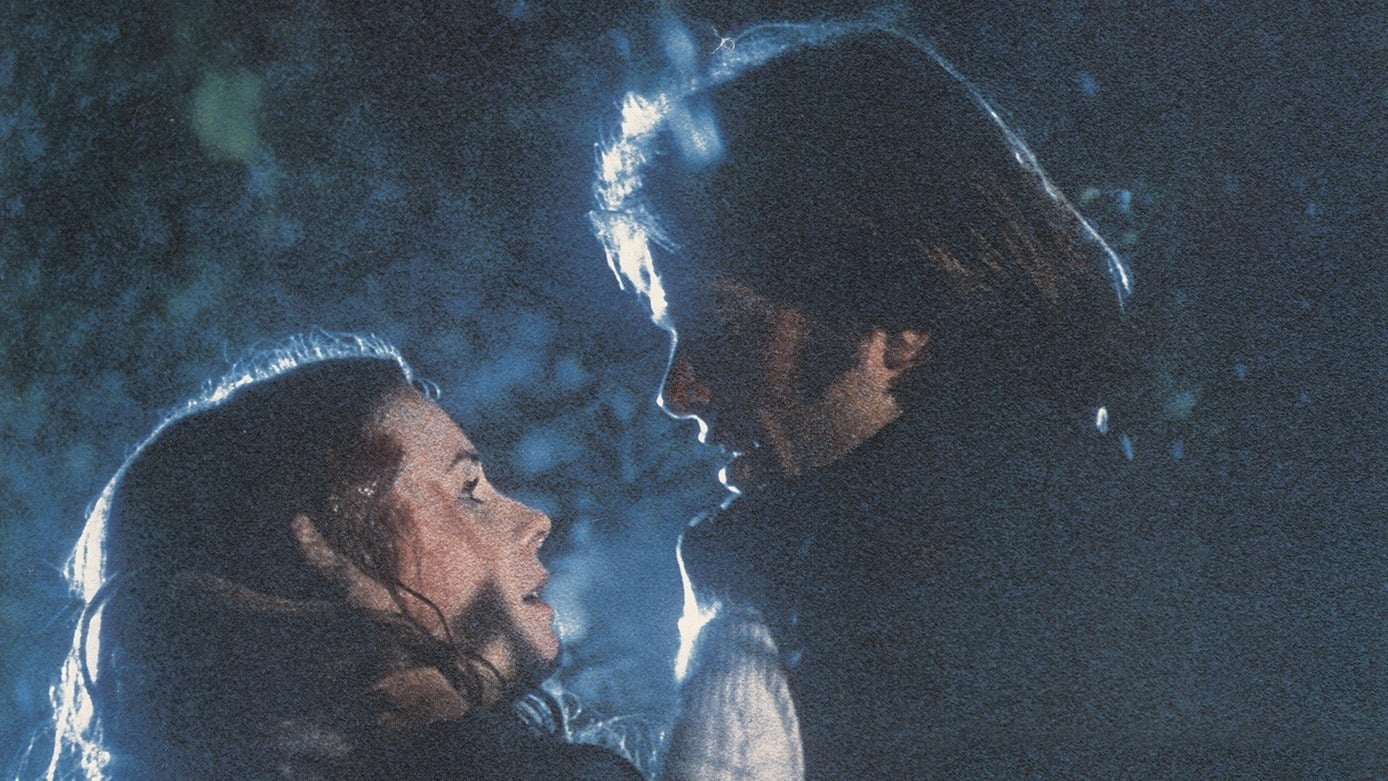
| Aloha, Bobby and Rose | |
|---|---|
| Directed by | Floyd Mutrux |
| Produced by | Fouad Said |
| Written by | Floyd Mutrux |
| Starring | Paul Le Mat Dianne Hull |
| Music by | Jaime Mendoza-Nava |
| Cinematography | William A. Fraker |
| Edited by | Danford B. Greene |
Production company | |
| Distributed by | Columbia Pictures |
Release date | |
Running time | 88 minutes |
| Country | United States |
| Language | English |
| Budget | $600,000 |
| Box office | $35 million[2] |
Bobby and Rose, two youngsters who are in love, have to run away from home when they are falsely accused to have committed a robbery and an assassinat. We do not provide paid / free Aloha, Bobby and Rose Movie downloads. We do not offer to watch Aloha, Bobby and Rose movie online. Aloha, Bobby and Rose Movie Review are added by registered customers. Free wallpapers download of Aloha, Bobby and Rose movie, hero, heroine, etc is available in our Gallery section.
Aloha, Bobby and Rose is a 1975 American roaddrama film written and directed by Floyd Mutrux about a young working-class couple who accidentally cause the death of a store clerk during their first date, and go on the run from the law.[3] The film starred Paul Le Mat and Dianne Hull, in addition to Robert Carradine in an early role.
Plot[edit]
In 1970s Hollywood, Bobby works as an auto mechanic by day, and shoots pool and races his red 1968 Chevrolet Camaro by night. His friend Moxey (Robert Carradine) is excited to be accepted to transmission school and build his skills for a better paying job. The less responsible Bobby seems to have no such direction in life and is still relying on his Uncle Charlie, a used-car salesman, to help him out of jams, such as by loaning him money to pay off his pool game bets to some menacing Chicanos.
Aloha Bobby And Rose Free Download Youtube
Rose is the young single mother of a 5-year-old son. Rose and her son live with Rose's romantic mother, who minds the little boy while Rose works at a car wash. Bobby meets Rose when he personally delivers her VW Beetle Cabriolet, on which his garage had worked, back to her at the car wash. Bobby tries to charm Rose into giving him a quick ride back to his work, but she refuses and tells him to take the bus. Later, when she gets off work, she sees him unsuccessfully trying to hitchhike in the rain (presumably lacking even 40 cents bus fare) and picks him up. When Rose stops at her house to change, Bobby discovers she has a young son, but isn't bothered by it and even spends time talking to the boy. Rose's mother is planning to take her grandson to the movies and then on to Disneyland for the weekend, and, seeing Rose and Bobby are attracted to each other, encourages Rose to go have fun with Bobby.

Bobby and Rose go on a date, including ice skating (though Bobby can't skate), window shopping, a stop at Pink's Hot Dogs, parking under the Hollywood Sign, and cruising the Sunset Strip. They daydream about moving to Hawaii. During a stop at a convenience store for wine, Bobby pulls a prank on the teenage store clerk by pretending he is a robber with a fake gun (actually a stick of beef jerky). But the joke backfires when the shop owner emerges from the back room with a shotgun pointed at Bobby. To save Bobby, Rose hits the owner over the head with a bottle, and as he falls, the gun goes off, accidentally killing the young clerk.
Bobby and Rose flee, first in Rose's VW (which they crash) and then in Bobby's red Camaro, heading for Mexico. Rose misses her son and at one point boards a bus to return home, but finds she cannot leave Bobby and gets back off the bus. In San Diego, the pair meet flamboyant Texans Buford and his girlfriend Donna Sue driving a Lincoln Continental Mark III, who invite Bobby and Rose to go to Mexico with them. The two couples travel to Tijuana where Buford and Bobby bond in the party atmosphere, but Rose still misses her son, so Bobby and Rose leave Mexico and return to Los Angeles to get him.
After having Bobby's Camaro painted black and picking up Rose's son, Bobby and Rose stop at an ice cream parlor on the way out of town, where Rose leaves her son alone in the car for a few minutes while going inside. A police officer sees the little boy alone in the car. Upon seeing police surrounding their car, Bobby and Rose abandon the car, leaving her son to be taken by the police, and hurry to a nearby cheap motel to hide out. Bobby calls his Uncle Charlie to bring him a getaway car, but Rose separately contacts the police, who have her son, and tells them she wants to talk to them about the recent 'accident', giving them the name of the motel where she and Bobby are staying. The police arrive that night in a rainstorm just as Bobby's Uncle Charlie drives up with the getaway car. As Bobby runs towards the car, the police mistakenly think he has a gun and, despite Rose's screams, shoot Bobby down. Rose cries over Bobby's body.
Cast[edit]
- Paul Le Mat as Bobby
- Dianne Hull as Rose
- Tim McIntire as Buford
- Leigh French as Donna Sue
- Martine Bartlett as Rose's Mother
- Noble Willingham as Uncle Charlie
- Robert Carradine as Moxey
- Erick Hines as Erick
- Mario Gallo as Benny
- Tony Gardenas as Rafael
- Edward James Olmos as Chicano #1 (as Eddie Olmos)
- Tip Fredell as Chicano #2
- William Dooley as Sam Gold
- Cliff Emmich as Bird Brain
- David Bond as Grocer
- Dorothy Love as Motel Clerk
Release and Reception[edit]
The film was distributed by Columbia Pictures. Although production began on October 22, 1973,[4] the release date was April 23, 1975.[1]
It was filmed on a low budget of $600,000, but became a huge box office success, grossing $35 million domestically,[2][5] making it one of the most successful films of 1975.[6][7]
(According to Variety the film earned $6 million in theatrical rentals at the North American box office.[8])
Vincent Canby of The New York Times gave the film a negative review, stating: 'The only tragic thing in a film like this is the quality of stupidity the characters are forced to exhibit in order to keep the plot going.'[9]Joseph McBride of Variety wrote, 'Youth-on-the-lam theme, the staple of so many pix in the last 10 years, is getting tired, and the fatigue shows clearly in 'Aloha, Bobby and Rose.'[10]Gene Siskel of the Chicago Tribune gave the film two stars out of four and dismissed it as 'one of those overwrought sob stories about a young couple who are always getting in trouble. The guy's got a slightly brutish outlook on the world; the girl knows how to twist her hair and cry a lot.'[11]Charles Champlin of the Los Angeles Times wrote that the film 'plays like a rehash of several dozen movies that you've sat through before, restlessly. You wince to see the waste of two attractive performers and a fair amount of competent craftsmanship on material so lacking in originality, aptness of thought or simple interest.'[12] Gary Arnold of The Washington Post called it 'an inarticulate film about inarticulate characters.'[13]
The Time Out review made some comparisons between Aloha and the critically acclaimed 1973 film American Graffiti, which also starred Le Mat, though the review goes on to say '…with little characterisation or depth, the plot doesn't finally add up to much more than a coda to Graffiti.'[14]

See also[edit]
Aloha Bobby And Rose Trailer
References[edit]
- ^ ab'Aloha, Bobby and Rose'. AFI Catalog of Feature Films. American Film Institute. Retrieved May 28, 2019.
- ^ abPhase 4 Films presents Aloha, Bobby and Rose.Phase 4 Films. Retrieved May 15, 2014.
- ^Pratt, Douglas (30 November 2004). Doug Pratt's DVD: Movies, Television, Music, Art, Adult, and More!. UNET 2 Corporation. p. 54. ISBN978-1-932916-00-3. Retrieved 29 April 2012.
- ^'ALOHA BOBBY AND ROSE'. British Film Institute. Retrieved 20 April 2012.
- ^'Aloha, Bobby and Rose, Worldwide Box Office'. Worldwide Box Office. Retrieved January 22, 2012.
- ^Schaefer, Dennis; Salvato, Larry (22 January 1986). Masters of Light: Conversations with Contemporary Cinematographers. University of California Press. p. 141. ISBN978-0-520-05336-6. Retrieved 29 April 2012.
- ^Andrew J. Rausch; Dequina, Michael (25 February 2008). Fifty Filmmakers: Conversations With Directors from Roger Avary to Steven Zaillian. McFarland. p. 161. ISBN978-0-7864-3149-6. Retrieved 29 April 2012.
- ^'All-time Film Rental Champs', Variety, 7 January 1976 p 46
- ^Canby, Vincent (30 April 1975). 'Aloha, Bobby And Rose (1974)'. The New York Times. Retrieved 29 April 2012.
- ^McBride, Joseph (April 16, 1975). 'Film Reviews: Aloha, Bobby and Rose'. Variety. 22.
- ^Siskel, Gene (July 22, 1975). 'Dismal duo for a drive-in double bill'. Chicago Tribune. Section 3, p. 5.
- ^Champlin, Charles (April 23, 1975). 'Back With the Born Losers'. Los Angeles Times. Part IV, p. 11.
- ^Arnold, Gary (August 28, 1975). 'Aloha' to Good Dialogue'. The Washington Post. B13.
- ^'Aloha Bobby and Rose'. Timeout.com. Archived from the original on 17 September 2012. Retrieved 29 April 2012.
External links[edit]
Aloha Bobby And Rose Youtube
- Aloha, Bobby and Rose on IMDb
- Aloha, Bobby and Rose at Rotten Tomatoes